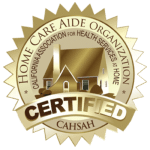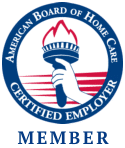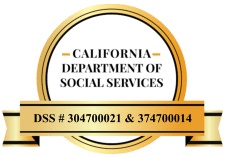It’s no surprise that seniors rely more on reading glasses and other corrective vision products to give their diminishing vision a boost. However, there are many age-related eye issues that need more attention than that. When family caregivers and elder care providers are looking after an elderly relative, they are in a unique position to observe how well their aging loved one’s vision is doing.
While it might be annoying to have to strain to read the fine print up close, that’s not the eye issue that doctors are truly concerned about. Eye diseases are more prevalent in aging adults, but most people don’t really recognize the symptoms because they believe they are just part of getting older. Family caregivers and elder care providers must be on the lookout for signs and symptoms of eye diseases in aging adults, so they can get to a doctor.
Seniors and Dry Eye
With age, the eyes often don’t produce enough tears, making it hard to keep the surface of the eyes moist. Without lubrication, an elderly adult’s eye can feel itchy and painful. Plus, it is difficult for them to focus on objects, from books and recipes to buttons, zippers
Cataracts
When the lens becomes clouded instead of clear, the condition is known as cataracts. Over time, they can obscure the aging adult’s vision, and seriously affect their ability to see clearly to completed daily tasks. Research shows that more than half of elderly adults in the United States will develop a cataract in one or both eyes. If family caregivers or elder care providers notice the aging adult talk about cloudy or blurry vision, colors fading or complain about the brightness or glare from lights, they may be developing cataracts.
Glaucoma
When fluid builds up within the eyeballs, it puts pressure on the optic nerve, the main conduit between the eye and the brain. With enough damage to the optic nerve, seniors can lose their vision. It is one of the leading causes of blindness in seniors. The first symptoms are problems with peripheral vision, headaches, and blurry vision. Family caregivers and elder care providers should note that glaucoma can start long before seniors notice any symptoms at all, and in the early stages it can only be detected by an eye doctor.
Macular Degeneration
When seniors complain to elder care providers and family caregivers about the lack of detailed vision, for things like reading, sewing or other fine work, most doctors will worry about macular degeneration. Another leading cause of blindness if not treated, those most at risk include smokers and those with a family history of the disease.
With so many things to focus on, many family caregivers don’t think about their aging loved one’s vision beyond getting them proper glasses. However, seniors should always get an eye inspection by an eye doctor at least once per year.
If you or an aging loved-one are considering hiring Home Health Care in Tustin, CA, please contact the caring staff at Canaan Home Care today!1-844-CANAAN-1 (1-844-226-2261)
- Follow These Four Steps and Create a Respite Plan - December 18, 2020
- End of the Year Holidays Can Cause Aging Veterans to Feel Lonely, but What About Home Care? - December 11, 2020
- Is Your Senior Battling Edema in Her Legs? - December 3, 2020




